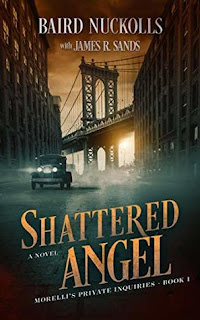(pb; 1986: second book in the Beast House Chronicles)
From
the cover
“The
house known as Beast House has become a museum of the most twisted and macabre
kind. It is a monument to its own infamous past. On display inside was wax
figures of its victims, their bodies mangled and chewed, mutilated beyond
description. The tourists who come to Beast House can only wonder what sort of
terrifying creature could be responsible for such atrocities. Surely nothing
human.
“Bur
some people don’t believe the beast even exists. They are convinced Beast House
is a huge hoax, an elaborate tourist trap, Nora and her friends don’t believe.
They are determined to find the truth for themselves. They will dare to enter
the house at night, when the tourists hae gone. When the beast is rumored to
come out. They will learn, all right.”
Review
Beast is a
vast improvement on its predecessor, The Cellar. Beast is a
great, fun B-flick of a splatterpunk─extreme horror─novel. It is a fast-paced,
waste-no-words work, with its violence, rape-happy monsters, other disturbing
sex and humor. Its characters, some of them seen in The Cellar, are
stock and sometimes Scooby-Doo gang stupid and gung-ho. These observations are
an amused appreciation, not a criticism in this case. Beast is one of
the most entertaining B-movie horror books I have read in a long while.
Followed
by The Midnight Tour.

















